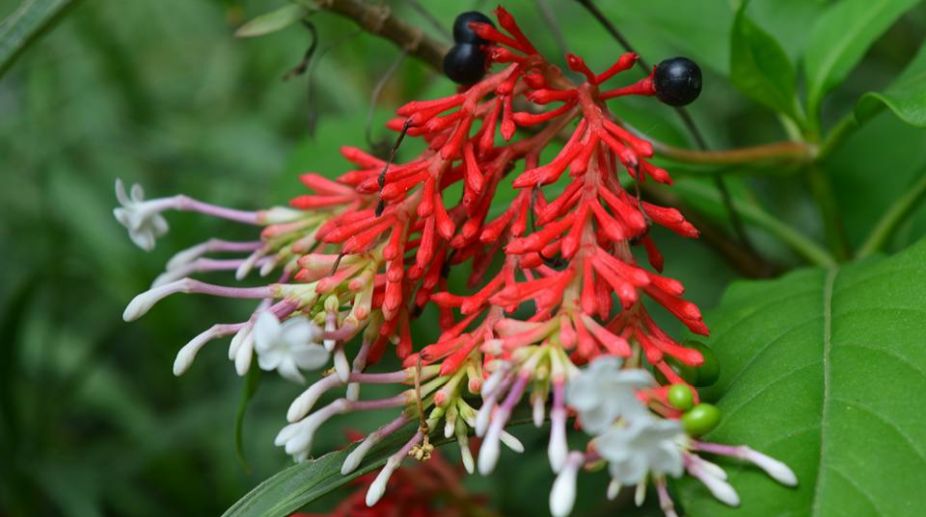Rise in tourist influx in and around Garumara National Park has not only badly affected the biodiversity of Dooars but has also hit the conservation efforts of environmentalists. Based on a recent study on plant diversity in Garumara by Abhaya Prasad Das, former professor of botany, North Bengal University, the research throws light on many new and interesting facts concerning the floral diversity of the region, the declining habitat of certain medicinal flora and the emergence of new floral species in the realm of botanical science.
The research was conducted from 2012 to 2017. “There are a number of endemic, rare and endangered floral species in Lataguri at the periphery of Garumara National Park. There are endemic floral species like Aponogeton crispus, primitive and endangered species like Gnetum montanum and two new floral species including Nymphaea abhayana and Lindernia palustris. Nearly 11 floral species have become endangered in the national park,” explained Das.
Advertisement
When it comes to conducting research work in the sphere of floral diversity in the national parks of North Bengal, there’s no stopping for Das and even post-retirement, he has engaged himself with the research activity. Be it Neora Valley National Park or Jaldapara Wildlife Sanctuary or Buxa Tiger Reserve, he always has his hands full in taking up research on floral diversity.
The adjoining areas in and around Garumara National Park is a favourable ground for the growth of numerous medicinal flora. “With a view to conserve the rare and endangered medicinal herbs, the forest department of West Bengal along with Foundation for Revitalisation of Local Health Traditions, Bengaluru have set up medicinal plants conservation area at three places in Dooars including Sursuti Reserve Forest on the fringes of Garumara national park, Buxa Tiger Reserve and North Sevoke Forest within Mahananda Wildlife Sanctuary in the vicinity of Sevoke.
The time has come to monitor the status of conservation in these areas,” informed Das. In these times, a number of medicinal species are becoming extinct in and around the park. Das said, “Around 11 medicinal flora are on the brink of extinction owing to factors like rampant collection of herbs and change in vegetation that are affecting the conservation practices in the national park. Spurt in bison population beyond sustainable limit denudes the vegetation cover of the national park.” The endangered medicinal floras are Rauvolfia serpentineand Cucurmazedoaria.
The ongoing hotel construction boom in Lataguri is playing havoc with the floral diversity of the national park. Expressing serious concern over the diminishing habitat of floral species in the national park, Das further said, “Conservation and commercial exploitation cannot go hand in hand. It’s time that exploitation of national parks aree stubbed out and a sincere approach to conservation practices is the need of the hour.”











